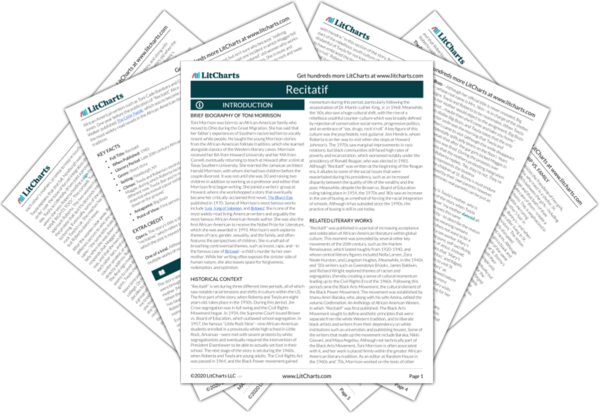The first sentence of the story introduces the symbol of dance, when Twyla states: “My mother danced all night and Roberta’s was sick.” In this sentence, Roberta’s mother’s illness is paralleled with Mary’s love of dancing, such that dancing is constructed as a kind of disability or ailment. Indeed, Mary’s dancing habit is framed as a condition that prevents her from performing the duties of a mother. It is possible, of course, that “dancing all night” is a code used to obscure the truth of Mary’s life from the eight-year-old Twyla; in reality, Mary might be a sex worker or have another reason for giving Twyla to the shelter that she doesn’t wish to reveal to her daughter.
Dancing is associated with abnormality and deviance throughout the story. The gar girls dance in the orchard to music from the radio, a detail that conveys their sexuality and rebelliousness. When explaining why she ran away from St. Bonny’s during her third period living there, Roberta remarks: “I had to. What do you want? Me dancing in the orchard?”. Dancing thus signifies an ominous future that Roberta and Twyla want to escape. Note that during the 1950s and ‘60s, when the first parts of the story are set, many contemporary forms of dance popular among young people were associated with deviant sexuality and immorality. This association emerges from a longer tradition of the demonization of African-American styles of dance, which white America deemed wild, hypersexual, and un-Christian.
A more metaphorical form of dancing is associated with the character of Maggie. Because of her bow legs, Maggie moves in an unusual way; according to Twyla, “she rocked when she walked.” It is only later in the story that Twyla makes the explicit connection between Maggie’s way of moving and her mother’s dancing: “Maggie was my dancing mother… rocking, dancing, swaying as she walked.” Once again, dancing is associated with disability and abnormality—in other words, the inability to function in the way deemed appropriate by society.
Dance Quotes in Recitatif
My mother danced all night and Roberta’s was sick. That’s why we were taken to St. Bonny’s.

Unlock explanations and citation info for this and every other Recitatif quote.
Plus so much more...
Get LitCharts A+I used to dream a lot and almost always the orchard was there. Two acres, four maybe, of these little apple trees. Hundreds of them. Empty and crooked like beggar women when I first came to St. Bonny's but fat with flowers when I left. I don't know why I dreamt about that orchard so much. Nothing really happened there. Nothing all that important, I mean. Just the big girls dancing and playing the radio. Roberta and me watching. Maggie fell down there once.
I thought if my dancing mother met her sick mother it might be good for her. And Roberta thought her sick mother would get a big bang out of a dancing one. We got excited about it and curled each other's hair.
I didn't kick her; I didn't join in with the gar girls and kick that lady, but I sure did want to. We watched and never tried to help her and never called for help. Maggie was my dancing mother. Deaf, I thought, and dumb. Nobody inside. Nobody who would hear you if you cried in the night. Nobody who could tell you anything important that you could use. Rocking, dancing, swaying as she walked. And when the gar girls pushed her down and started rough-
housing, I knew she wouldn't scream, couldn't—just like me—and I was glad about that.
"Did I tell you? My mother, she never did stop dancing."
"Yes. You told me. And mine, she never got well." Roberta lifted her hands from the tabletop and covered her face with her palms. When she took them away she really was crying. "Oh, shit, Twyla. Shit, shit, shit. What the hell happened to Maggie?"












